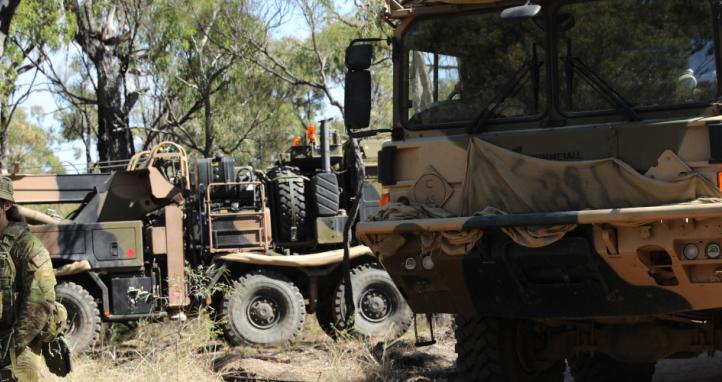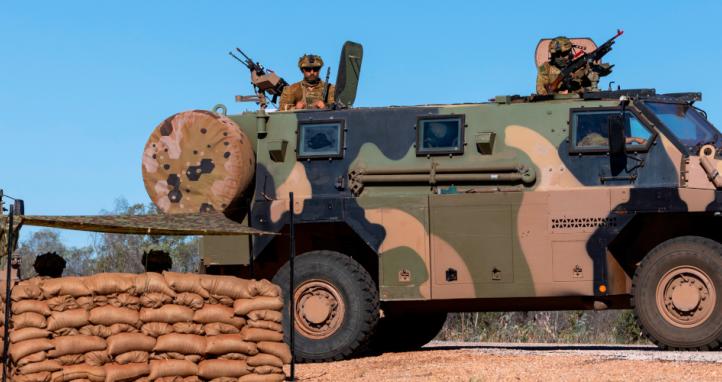In the time I spent at the Royal Military College (RMC) – Duntroon, I learnt a lot. So much so that naturally some of the information that came my way was data dumped almost the moment it touched the back of my skull. In many instances this was probably OK, in a few cases however I wish I’d heeded the advice and put it into practice as soon as I marched into wider Army as a newly minted Lieutenant (LT). My career is still just getting started, but I thought I’d share with current and future staff cadets and brand spanking LTs my views on some of the most important messages you can take away from the college.
Warrant Officers and Senior Non-commissioned Officers have experience, it is foolish not to use it. The relationship between officers and senior non-commissioned officers (SNCOs) needs to be continually fostered. I have seen both Warrant Officers (WOs) disgruntled at junior officers for no reason other than that they are officers and officers who disregard WOs and SNCOs because they don’t have a commission. Neither of these approaches is productive – but likely has more to do with the plethora of junior officers that SNCOs and WOs have had to deal with that ‘know better’ in their careers. Throughout my first years as an officer, I have learnt a lot and if I was to compare myself to even one year ago I have gained much experience. The experience is nothing in comparison to the seniors within my unit. I can’t count on my hands the amount of times the guidance of the senior soldiers within my unit has enabled me to avoid repeating mistakes they’ve seen made by junior officers over and over again. Ignore the SNCOs and WOs in your unit at your own peril. They take pride in mentoring junior officers, build and foster these relationships – they’ll last a career.
The military appreciation process can be applied to anything. Recently whilst on the All Corps Captains Course I finally saw the utility of the military appreciation process (MAP) (perhaps I’m a slow learner). We moved into the Ops phase and I used it again for the first time since the college. Within two days of beginning the walkthrough of individual MAP and Staff MAP it dawned on me how useful the process would have been for an exercise I had planned earlier in the year. The MAP forces outputs which guide thought processes to a decision that is suited to the problem. I don’t know how many times I was told at RMC that the MAPs we were conducting are the framework for problem solving as an officer. It has taken me two years to realise the relevance. I’m pretty sure the next big life decision I need to make with my family I will try and adapt the MAP to it. Critical reasoning, and the ability to generate decision superiority over adversaries is a fundamental skillset of a military officer. The MAP is a gift in terms of facilitating this effect.
Officers are enablers. We enable soldiers to get the job done. This links back to humility in my mind which I see as one of the most important leadership traits for an officer. I often see officers who are so engrossed in their own image that they forget we are not the primary focus. I can not do the job of a medic, I exist to ensure that medics can do their job and save lives…or treat blisters. I’ve also noticed that enabling subordinates is the most effective way to achieve personal and professional success. This is in my mind the essence of servant leadership and it’s an approach I didn’t consider at RMC. If your people are successful, you’ll be successful. So if you want a decent Performance Appraisal Report at the end of the year find a way to remind yourself when times get stressful, to put your subordinates first and you can’t go wrong.
At least one subordinate will always complain about the decision you make, and that’s OK. Whilst we should be subordinate focused, it’s also important to realise that as a leader you’ll have to make tough decisions at times and you never make a right decision that everyone will like. I am not in the Army to be liked, if I wanted to be liked I would have stayed a carpenter; everyone loves tradies and their utes. I have witnessed some junior officers who get caught up in what their subordinates think about them so much so that it becomes detrimental to the development of those very subordinates. The ripple effect of poor leadership is strong, and one fundamental role of an officer is to develop subordinates, the likable leader is perhaps not the best way to achieve this. As soon as we start making decisions based on how our subordinates view us we limit our effectiveness. Be an officer for the soldiers, not of the soldiers. The latter is an approach that will only reap rewards for so long.
You are responsible for your own development. The college, and later the all-corp training continuum, does an excellent job in providing the frame work for us to develop into confident officers. However, I have observed a reliance on the military school houses to teach us everything. It took me a while to realise we have many ways to learn and develop as officers such as: social media, books, senior officers within our corps and even civilian peers in similar roles. I regret missing the opportunity to tag along to briefings, orders and health planning conferences that I wasn’t directly involved with, and I wish I had engaged in a broader professional military education network like The Cove earlier. Look for opportunities for development around every turn, and say yes to everything – the college and all corps officer training continuum is just the start. As I mentioned at the start of this piece, my career is really just beginning which means my college days are still fresh enough to reflect on the messages I didn’t pay enough attention to. It is my hope that those who come after me and my peers will knock us out of the park in terms of their ability to lead and contribute to Army. To that end I ask them to remember to find mentors in senior soldiers, be thankful for the tools they have and use them, enable their subordinates, be for rather than of soldiers and say yes to opportunities for personal and professional development.









